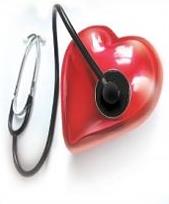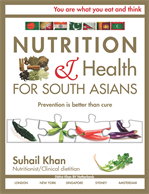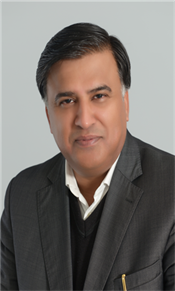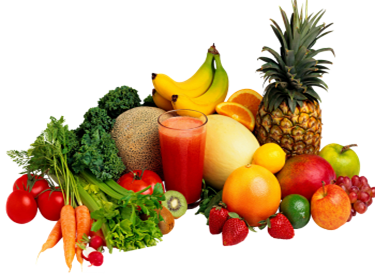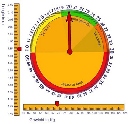
HYPERTENSION
In this chapter I would like to tell you what high blood pressure is. As you know, the heart pumps the blood through our blood vessels. Blood pressure is always expressed in two numbers. The first number, the systolic blood pressure (systolic pressure), is always higher than the second number, and the lowest pressure (diastolic pressure). The blood pressure is actually two forces that are in the blood vessels. A force is exerted by the heart as the left atrium room contracts, this gives the 'systolic blood pressure'. As the heart relaxes it creates a vacuum.
One can not measure blood pressure without a blood pressure meter (sphygmomanometer). In normal circumstances, the systolic blood pressure is below 140 mm Hg and the lowest pressure below 90 mm Hg. For patients with diabetes and kidney diseases the average values are 130/80 mm Hg. Normally, the blood pressure increases as one gets older. For healthy people over 60 160/90 mm Hg is a normal blood pressure.
Blood pressure
(in adults)
About RR 120/80 mmHg Optimum blood pressure
less than RR =140/90 mm Hg =normal blood pressure
More than RR = 160/95 mm Hg hypertension
RR stands for Riva-Rocci, an Italian researcher who discovered the method for measuring the blood pressure. The Russian Karotkoff improved this technique by the use of the stethoscope.
The target values of our blood pressure are:
130/85 mm Hg-< (optimal or normal) at risk patients
140/90 mm Hg (normaal) < in normal hypertension
Blood pressure
(in adults)
About RR 120/80 mmHg Optimum blood pressure
less than RR =140/90 mm Hg =normal blood pressure
More than RR = 160/95 mm Hg hypertension
RR stands for Riva-Rocci, an Italian researcher who discovered the method for measuring the blood pressure. The Russian Karotkoff improved this technique by the use of the stethoscope.
The target values of our blood pressure are:
130/85 mm Hg-< (optimal or normal) at risk patients
140/90 mm Hg (normaal) < in normal hypertension
Symptoms of hypertension
Hypertension usually gives no clear symptoms. Some people with hypertension suffer
from heavy heads, headache, fatigue, nausea and/or dizziness. A prolonged high
blood pressure is harmful to health and can lead to vasoconstriction.
The causes of hypertension
In most cases, the causes of high blood pressure are not known. Only 5% of cases
have a specific cause. We refer to this as primary hypertension or essential
hypertension or idiomatic hypertension. The causes of high blood pressure may
include:
• heredity
• age
• stress
• to much salt
• to much masala
• to much liquorice (drop)
• over consumption of alcoholic beverages
• overweight
• physical activities
• smoking
• elevated cholesterol levels
• hormonal disorders (Conn syndrome, pheochromocytoma)

Copyright © 2013 All rights reserved. Dietician/Nutritionist Khan - Sitemap
WebDen Website Design en Hosting - Website ontwerp door: www.designer-dragonfly.nl
WebDen Website Design en Hosting - Website ontwerp door: www.designer-dragonfly.nl



In some cases, hypertension is caused by another condition. This is called secondary hypertension. An abnormal production of hormones (especially in the adrenal gland) which affects the kidneys, can also cause hypertension. Hypertension rarely causes symptoms. An exception to this is malignant hypertension. This is a severe form of hypertension, where the brain, heart, kidneys and eyes are affected.
The blood pressure may often change, but should never remain high on a long term basis as the risk of heart disease and/or stroke will increase. Both a too low blood pressure (hypotension) and too high blood pressure (hypertension) can lead to health problems.
The health effects
High blood pressure is not a disease but a risk factor. People who suffer from hypertension for years could die young, usually because of heart disease, a stroke or kidney failure. Blood pressure tends to rise slowly with advancing age. A higher blood pressure gives a higher risk of damaging certain internal organs. In Western countries hypertension is very common. It's not for nothing that hypertension has been given the nickname 'the silent killer'.
The goal of treatment is to lower the blood pressure and reduce the risk of organ damage. For mild hypertension, it is possible for the blood pressure to adjust to a normal level with some adjustments in lifestyle: quitting smoking, moderate alcohol consumption, following a healthy diet (limit salt intake, reduce consumption of masala, limited drop, weight loss, (isotonic) and starting a exercise routine (cycling, swimming, running). However, one should avoid heavy weight lifting. Should these lifestyle changes not make a difference in lowering the blood pressure, then medications will be prescribed to treat the hypertension. Suffering from hypertension over long periods can affect many internal organs such as the heart, major blood vessels, kidneys and the brain.
There are several medications that can be prescribed for hypertension. Examples are water pills, diuretics, ACE inhibitors, beta blockers, and calcium blockers. If you ingest water pills, you need to increase foods such as potatoes, leafy vegetables, banana, pineapple and milk products.
The blood pressure may often change, but should never remain high on a long term basis as the risk of heart disease and/or stroke will increase. Both a too low blood pressure (hypotension) and too high blood pressure (hypertension) can lead to health problems.
The health effects
High blood pressure is not a disease but a risk factor. People who suffer from hypertension for years could die young, usually because of heart disease, a stroke or kidney failure. Blood pressure tends to rise slowly with advancing age. A higher blood pressure gives a higher risk of damaging certain internal organs. In Western countries hypertension is very common. It's not for nothing that hypertension has been given the nickname 'the silent killer'.
The goal of treatment is to lower the blood pressure and reduce the risk of organ damage. For mild hypertension, it is possible for the blood pressure to adjust to a normal level with some adjustments in lifestyle: quitting smoking, moderate alcohol consumption, following a healthy diet (limit salt intake, reduce consumption of masala, limited drop, weight loss, (isotonic) and starting a exercise routine (cycling, swimming, running). However, one should avoid heavy weight lifting. Should these lifestyle changes not make a difference in lowering the blood pressure, then medications will be prescribed to treat the hypertension. Suffering from hypertension over long periods can affect many internal organs such as the heart, major blood vessels, kidneys and the brain.
There are several medications that can be prescribed for hypertension. Examples are water pills, diuretics, ACE inhibitors, beta blockers, and calcium blockers. If you ingest water pills, you need to increase foods such as potatoes, leafy vegetables, banana, pineapple and milk products.
Hier kunt u uw BMI
berekenen.
berekenen.




